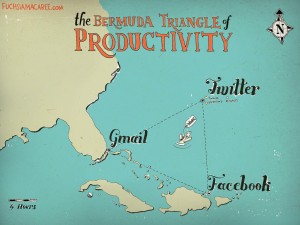Subscribe: Apple Podcasts | Android | RSS
[display_podcast]
This week we start with a listener comment – a tweet, really – from @autumnthompson who asks what a new person like her can do to further her career. In past episodes, we covered advice for students looking for their first job, but we haven’t discussed how to move ahead in your career. So thanks Autumn.
Joe starts by saying you’re never too young to stand out: be curious, listen, learn and talk about what you know and build your network. The people you meet at the beginning of your career are going to be with you throughout your work life. And always strive to do your best and be outstanding.
Gini adds that you should use social networks to get outside your four walls and find people to connect to inside and outside your agency and develop relationships.
Martin suggests you should begin those relationships early. Just because you’re connecting with a potential employer doesn’t mean you’re looking for a job. Martin also references an article by Susan Balcom Walton in the Spring edition of PRSA’s Strategist, entitled ‘Demonstrating value to boomer bosses: a memo to millenials’, that offers helpful advice on navigating the work force during the early part of one’s career (subscription required).
Martin asks Gini about her recent blog post on things organizations should consider when they’re entering the social arena. Gini says the post is based on a five-step process she and her team take clients through as they help develop a strategy. They begin by listening, then assess where a company’s customers and prospects are. This is followed by engagement, measurement and refinement.
Joe suggests including two more items at the front end. He encourages businesses to start by asking: is there a business case; and does social media make sense within the corporate objectives? And then they need to look at the questions around governance.
Martin says companies should establish a social media policy for staff from the beginning, making sure people know and understand the parameters. Joe thinks social media policies should go beyond responding and should include privacy, security, intellectual property, accessibility, liability, data jurisdiction and communications/languages policy. According to Gini, this really isn’t any different than an employee code of conduct for real-life events.
And that’s a wrap for this week. Next week, it’s the first anniversary for Gini, Joe and Martin. Any ideas on how we should celebrate?
Do you have comments? Send us an email or an audio comment to [email protected], join the Inside PR Facebook group, leave us a comment here, message us @inside_pr on Twitter, or connect with Gini Dietrich, Joe Thornley, and Martin Waxman on Twitter
Our theme music was created by Damon de Szegheo; Roger Dey is our announcer.
This week’s episode was produced by Kristine Simpson.

